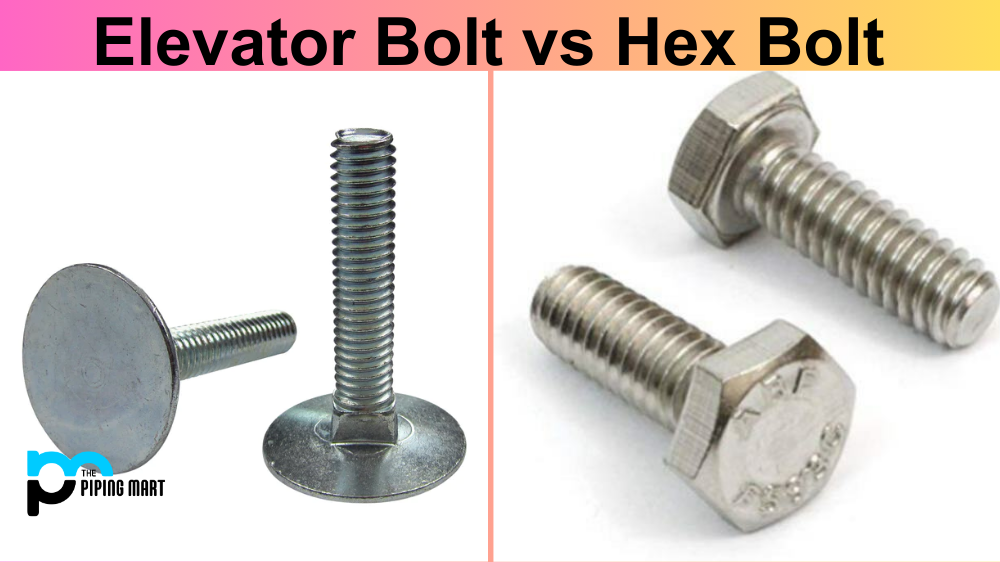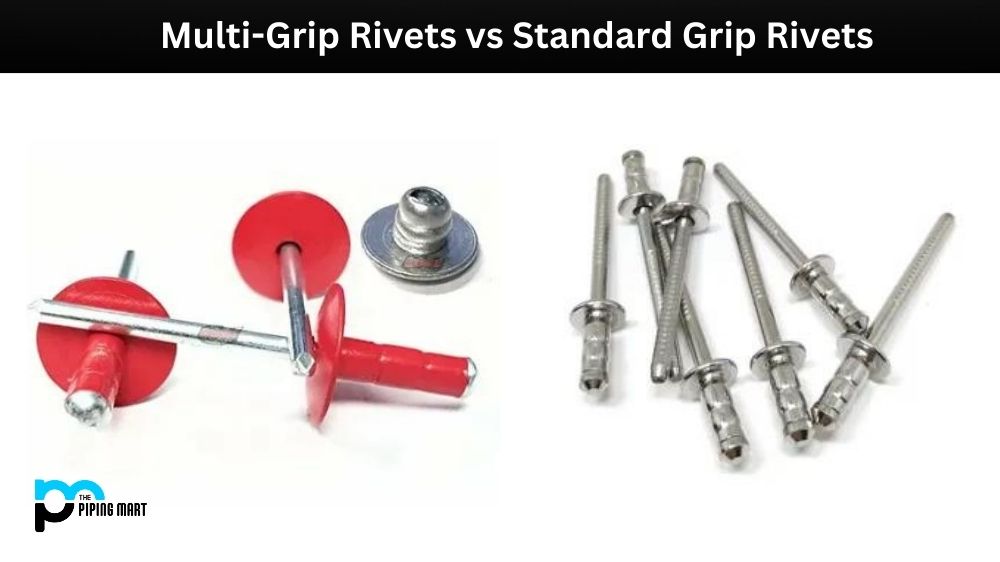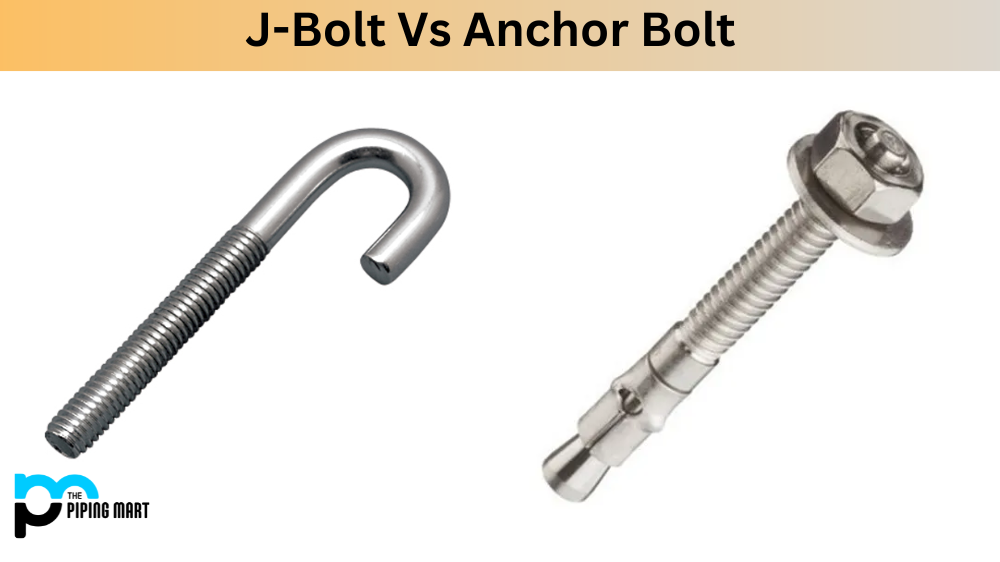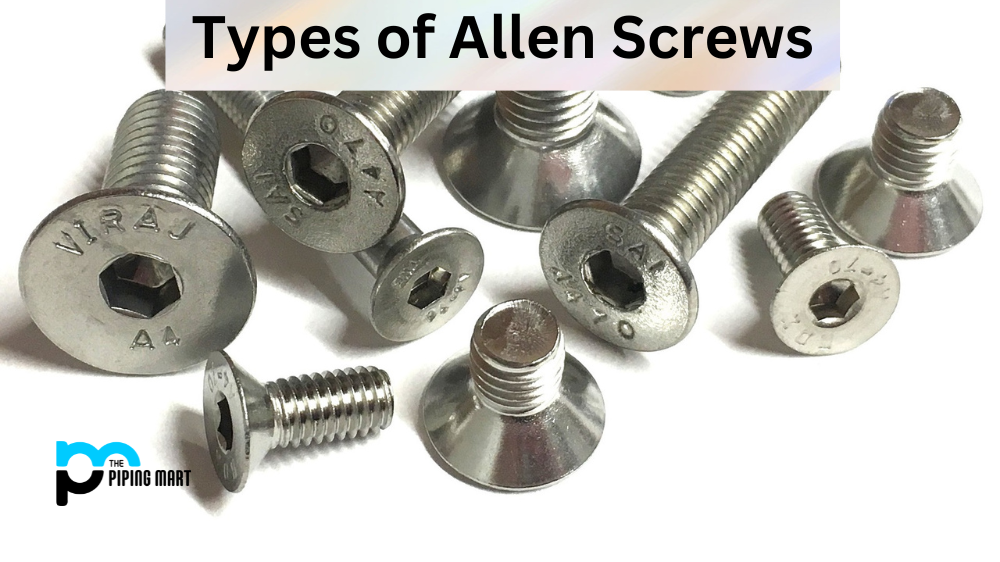Bolts may seem like a small component, but most machines will only function properly with them. Several types of bolts are available in the market, but elevator bolts and hex bolts are commonly used. Both bolts have unique features and are specialized for different applications. In this blog post, we will discuss the difference between elevator and hex bolts, their uses, and which is suitable for your project.
What are Elevator Bolts?
Elevator bolts are primarily used in conveyor systems and elevators. This bolt features a large, flat head with a square or oval-shaped countersunk neck. The large head of the elevator bolt prevents the belt from slipping, and the countersunk neck allows the belt to lie flat without obstruction. They are made of low-carbon steel and come in different sizes and finishes.
Elevator bolts are stamped with the letter “EB” and the diameter or shank size. These bolts are a great choice for conveyor systems, as they can withstand the weight of heavy-duty materials and resist wear and tear. They offer a safe and secure connection for conveyor belts.
What are Hex Bolts?
Hex bolts are standard with a hexagonal-shaped head that requires a wrench or pliers to tighten or loosen them. They are made of carbon steel, stainless steel, and other materials, making them suitable for various applications, including automotive, construction, and manufacturing industries. The most popular types of hex bolts are grades 2, 5, and 8.
Hex bolts are designed to provide a tight and secure hold. They have a threaded shank and flat tip that allow them to be fastened into a tapped or drilled hole. They come in various sizes, finishes, and grades to suit the application’s needs.
The Difference Between Elevator Bolt and Hex Bolt:
The primary difference between elevator bolts and hex bolts is their functionality. Elevator bolts are designed for conveyor systems and elevators and feature a large head with a square or oval-shaped countersunk neck. The countersunk neck allows the belt to lie flat without getting obstructed, while the large head provides a secure hold. On the other hand, hex bolts are versatile for various applications and require a hexagonal-shaped wrench to install them.
Elevator bolts are also made of low-carbon steel and come in larger sizes than hex bolts, which are made of different materials and come in various sizes, finishes, and grades. Additionally, elevator bolts have a smooth, rounded head that is less likely to catch or snag on passing objects, while hex bolts feature a hexagonal-shaped head that can catch and snag on objects.
Choosing the Right Bolt:
Choosing the right bolt depends on the application. If you require a bolt for a conveyor system, the best choice would be an elevator bolt. However, a hex bolt would be the better choice if you require a bolt for construction or industrial work.
When choosing a bolt, you should also consider the pressure applied. If you require a bolt to hold up heavy machinery, a grade 8 hex bolt would be suitable. However, if you require a bolt for a smaller application, a grade 2 hex bolt would suffice.
Conclusion:
Choosing the right bolt for your project is essential to ensure its longevity, safety, and reliability. Elevator bolts and hex bolts are both useful in various applications. Elevator bolts are great for conveyor systems and elevators, while hex bolts offer versatility for automotive, construction, and manufacturing industries. The primary difference between elevator bolts and hex bolts is the application in which they are used and the type of head and shank design. Before selecting a bolt for your project, consider its functionality, material, size, finish and grade. Elevator Bolt Vs Hex Bolt – What’s the Difference
Sakshee is a talented blogger, with a particular focus on the Business and Metal Industry. She is passionate about sharing her insights on various metal products and helping professionals to make a better decisions.




